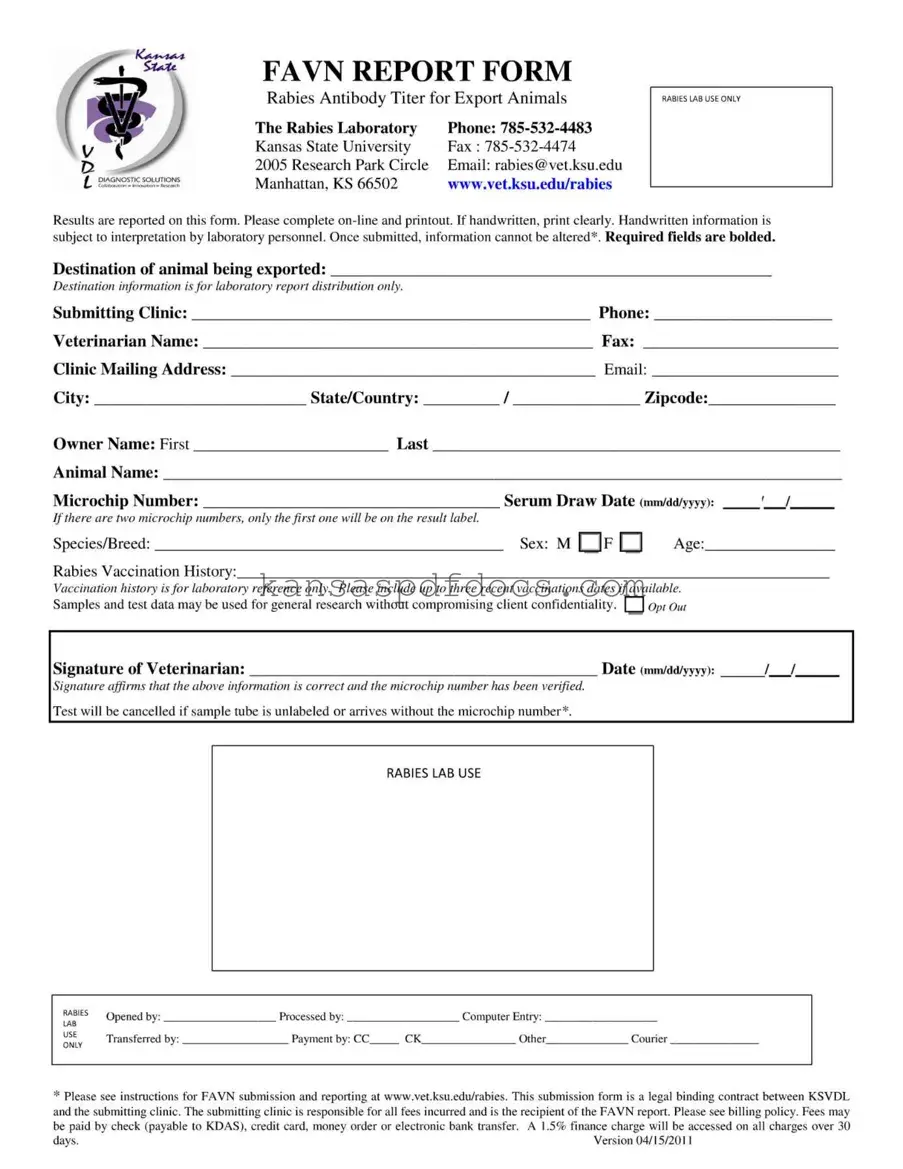Download Kansas Favn Report Form
The Kansas FAVN Report Form is a crucial document used to report rabies antibody titer levels for animals being exported. This form ensures that all necessary information is accurately captured and submitted to the Kansas State University Rabies Laboratory. Proper completion of the form is essential for compliance with export regulations and to facilitate the safe travel of your pets.
Access This Form Now

Download Kansas Favn Report Form
Access This Form Now
Your form isn’t ready yet
Edit and finalize Kansas Favn Report online without printing.
Access This Form Now
or
Get PDF Form
